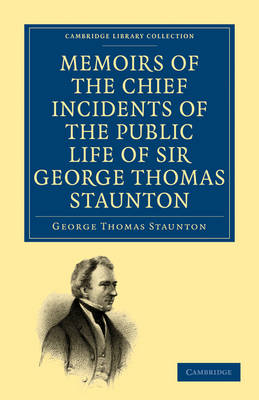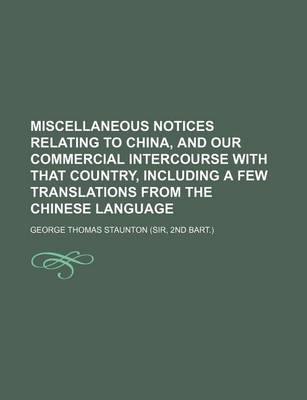Cambridge Library Collection - East and South-East Asian History
2 total works
Sir George Thomas Staunton (1781-1859), sinologist and politician, was a key figure in early nineteenth-century Anglo-Chinese relations. Staunton secured a post as a writer in the East India Company's factory in Canton in 1798 and was the only Englishman at the factory to study Chinese. He translated China's penal code and was promoted to chief of the Canton factory in 1816. He was a member of Britain's Amherst embassy to Peking in 1816-1817 to protest against mandarins' treatment of Canton merchants. The embassy failed to obtain an imperial interview but, despite being threatened with detention by the Chinese, Staunton insisted that the British should not submit to the emperor. Staunton returned to England in 1817, and served as a Tory MP between 1818 and 1852. Staunton's Memoirs, which were printed privately in 1856, provide a unique insight into nineteenth-century British perceptions of China.
The sinologist George Thomas Staunton (1781-1859) learned Chinese as a child and accompanied his father on a trip to China in 1792 where, though the Ambassador's page, he was the only member of the delegation who could speak to the Emperor in Chinese. A career in the East India Company's Canton factory followed, and he translated many texts between Chinese and English. Upon his return to Britain in 1817, he spent many years as a Tory MP and often spoke about China and its trade with Britain. He also continued to write about these issues, and this collection of translations and essays, published in 1822, reflects Staunton's varied interests - ranging from a translation of the Chinese history, Tung-wha-loo to his own writings on the Company's trade disputes with the Emperor - making this work a unique and valuable source of information on British cultural, economic, and diplomatic relations with China in the early nineteenth-century.

